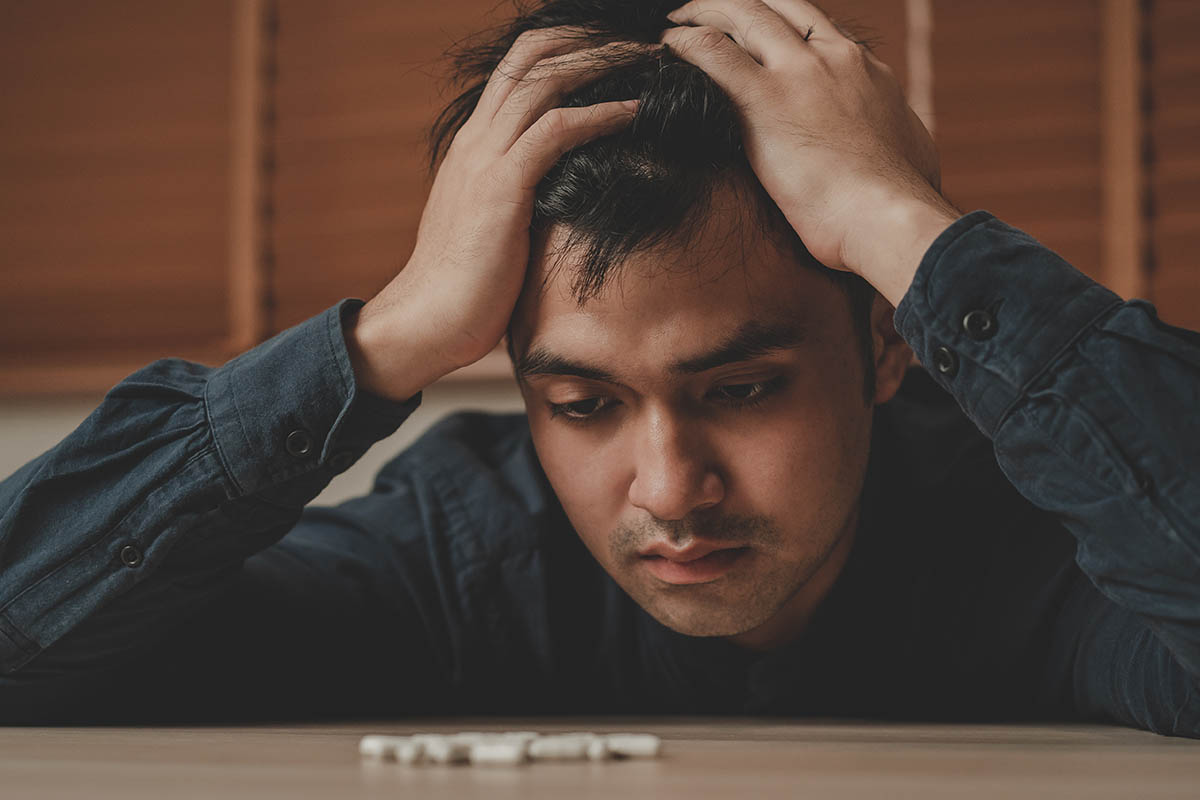Xanax is a central nervous system depressant used to treat anxiety and seizure disorders. A doctor may also prescribe Xanax to help patients sleep and treat their drug and alcohol withdrawal symptoms. Sadly, Xanax abuse and depression are possible as some people become addicted to the drug. If you fear Xanax worsening depression, contact us online or call 833.627.0039 today to learn how our prescription drug addiction treatment programs may be able to help.
Xanax Abuse and Depression
There is a strong relationship between anxiety and depression, and if prescribed Xanax for your anxiety, you may be wondering and worrying, “can Xanax make your depression worse?”. Suppose a person takes Xanax for their anxiety and displays depressive symptoms. In that case, it can be difficult to ascertain whether this represents a depressive reaction to the anxiety or interaction due to medications. Therefore, when it comes to answering the question, “is depression a side effect of Xanax?” there is no definitive way to know if it is Xanax worsening depression or not.
This is because one of the long-term side effects associated with the use of benzos like Xanax is the development of depressive-like symptoms. Potential signs of Xanax abuse and depression include:
- Poor motor coordination
- Slurred speech
- Impaired thinking
- Irrationality
- Significant sadness
- Mood swings or extreme emotions
- Irritability, aggressiveness, and even psychosis (such as hallucinations or delusions)
Who Is In Danger of Xanax Worsening Depression?
While anyone using Xanax may develop depressive side effects when answering the question, can Xanax make your depression worse? Certain populations of individuals are more likely to be in danger of Xanax worsening depression that already exists and has been diagnosed. The following groups of people are at a higher risk to develop depressive symptoms from using Xanax:
- People who abuse Xanax
- Individuals over age 65 (because of their metabolism)
- Children or adolescents
- People with a prior history of MDD, an anxiety disorder, or some other mental health disorder
- Anyone abusing other medications or drugs
- Those with the following pre-existing medical conditions:
- Thyroid problems
- Cardiovascular issues
- Neurocognitive disorders
- History of head injuries
When abusing central nervous system depressants like Xanax, you may lose your ability to control your emotions and begin to partake in certain behaviors. Depression can be a side effect of Xanax because individuals who abuse the drug will often display severe depressive symptoms, such as decreased mood, crying, and sadness.
Regarding risking behaviors you otherwise have never or would not engage in, it is here when you may see Xanax worsening depression. There is potential for you to express depressive symptoms due to being under the influence of benzo like Xanax and engaging in potential self-harm. This is true because those who abuse central nervous system depressants are at a greater risk for suicide if they are experiencing depressive symptoms.
If Xanax is prescribed by a trusted doctor and only used for short-term use, there are usually no detrimental side effects, and Xanax’s worsening of depression may not be an issue for you. However, over time, if you use and abuse Xanax, you may be putting yourself at risk for experiencing problems with attention and concentration, memory, slurred speech, irritability, and fatigue, as well as more catastrophic consequences and actions as a result of your Xanax abuse and depression.
Learn More at Midwest Recovery
Getting help for Xanax abuse is just a phone call away. Prescription drug addiction is treatable, and our professional treatment programs at Midwest Recovery may be able to help you before Xanax makes your depression worse. Contact us using our secure online form or call us confidentially at 833.627.0039.







